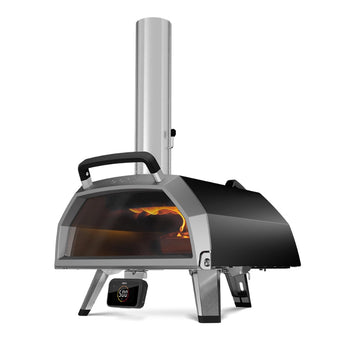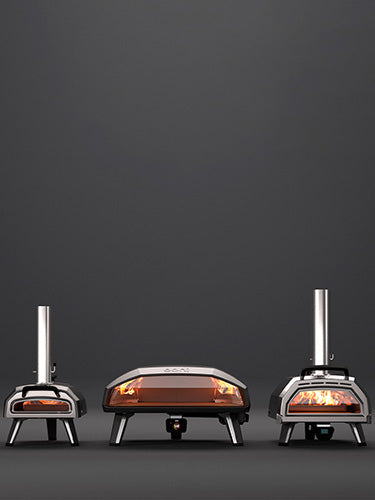What makes a great vegan pizza? If it’s “free-from” dairy and “free-from” meat, how does that liberation translate into flavor and experience? Is melt-in-your-mouth ethical cheese really a thing?
Non-vegan pizza lovers can be pretty skeptical about vegan pizza. In an effort to bust myths, we got in touch with some notable vegan restaurateurs and plant-based food producers around the world: 20th Street Pizza in Philadelphia; Vacka42 in Barcelona, Spain; and Purezza in the UK. Here’s what they had to say.
Mark Mebus, the man behind 20th Street Pizza, has been vegan for 18 years. Like most of us, he’s loved pizza far longer — and he doesn’t think veganism and pizza fandom are mutually exclusive. Perhaps unsurprisingly, Mark gets particularly frustrated when people tell him they couldn’t imagine going vegan because they’d miss pizza. After hearing that one too many times, he said to himself, “I need to fix this pizza situation.”
Mark opened his first vegan spot, Blackbird Pizzeria, back in 2010. At the time, it was one of only a handful of places dedicated to vegan and vegetarian food in Philly. Nowadays, vegan joints are less uncommon — and the ethical food world has come a long way since those early days when, as he says, “vegan cheese was brutal.”
Mark’s latest restaurant, 20th Street Pizza, takes his mission to serve great vegan and vegetarian food made from seasonal, local, and sustainable ingredients to the next level. He sources most vegetables as locally as possible — preferably from producers in Lancaster County and Philadelphia. Mark’s mushroom grower, Mycopolitan, works so closely with him that they grow mushrooms specifically for 20th Street Pizza’s pies.
Let’s go back to cheese for a moment. Vegan cheese is no longer “brutal,” unless that means it’s getting brutally good. Vegan cheesemaker Conscious Cultures Creamery, for example, doesn’t use additives or starches. The result is a creamy, savory product that melts and browns beautifully.
Mark’s focus on fresh and local ingredients has led to 20th Street creations like smoked carrot pizza and a recent offering, hot potato pizza with a Fresno romesco sauce. Yum!
Mark’s also a tinkerer; consequently, he’s on a quest to achieve the perfect pizza base taste and chew. He only works with sourdough, and he mills a full 12 percent of the flour he uses in-house. The changes he makes to his dough aren’t monumental (hydration percentage adjustments of just one or two points) but they do have an impact. Vegan or non-vegan, if you haven’t tried or considered it already — and if you’re serious about pizza and have, as Mark calls it, “a big affinity for sauce on bread” — this kind of attention to detail can really up your dough game.
An affinity not just for sauce, but for sauce and cheese on bread, is what led Max Boniface (one of the cheesemakers behind Barcelona-based vegan creamery Vacka42) to pizza. When Max gave up animal products and realized he’d left most of the good pizza he knew behind, he set out to make himself something delicious.
The result? An organic, fermented almond cheese mozzarella with a meltability that makes it particularly suited to pizza. You’ll find Max’s incredible vegan mozzarella on the menu at numerous high-profile pizzerias — like 50 Top Pizza-acclaimed Grosso Napoletano, for instance.
Elasticity and meltability are two of the biggest challenges when it comes to making dairy-free cheeses that work on pizza. Cow's milk cheeses contain casein — a protein that helps cheese to stretch — but there’s no casein in plant products. For Max, a little less stretch is worthwhile if it means that he can produce a more environmentally friendly cheese. He claims that the production of his cheese “generates 90% less carbon footprint” than animal-based cheese and is healthier, with no cholesterol from animal fats.
Max may be vegan, but he’s still French. When it comes to making a delicious vegan pizza, he advocates for robust flavor. “I like strong cheeses,” he said. “My favorite would be a blue cheese, let’s say a vegan gorgonzola with fruit jam. There is a good balance between strong cheese flavors and sweet stuff.”
Vegan pizza-making can be fun — but being a plant-based pizzaiolo isn’t always easy. The folks at Vacka42 often post memes about the backlash they experience on Instagram (@vacka42). Plant-based diets are on the rise, but vegan restaurants (especially if they specialize in pizza) still have to put up with skepticism, hesitancy and outright hostility.
Anti-vegan static is something Purezza, which claims to be the United Kingdom’s first vegan pizza restaurant, knows all about. Purezza operates in five locations — Bristol, Hove, Brighton, Camden and Manchester — and teams mostly receive positive feedback. Still, some people habitually turn their noses up at vegan pizza.
Purezza’s solution to non-vegan cynicism? Non-vegans eat free days. According to marketing director Rob Trounce, these events are “a way of showcasing just how good vegan food can be, and showing that plant-based eating doesn’t have to be a sacrifice.”
Though dishes at Purezza’s five locations are technically “free-from” — and in that way limited in what they contain — executive chef Filippo Rosato says that “constraint actually breeds innovative thinking.” Without the classic pizzas — Margherita, Quattro Stagioni, Pepperoni, etc. — to rely on, Purezza’s team must get creative. But when they incorporate things like beet carpaccio and fried aubergine (eggplant) as toppings, you realize, as Filippo says, “there’s a world of flavor out there.”
When it comes to creating a delicious vegan pizza, Rob and Filippo have several tips. Tip one? A great sauce. “As vegan cheese doesn’t have dairy or milk, it doesn’t retain moisture well,” Rob says. “It often needs a secondary source of moisture to achieve the same effects as dairy mozzarella.”
Filippo loves cream sauces. Rob’s a big fan of tomato sauce, especially when it’s on Purezza’s 2018 UK National Pizza Awards National Pizza of the Year-winning Parmigiana Party (topped with fried aubergines, vegan sausage and smoked vegan mozzarella).
When it comes to toppings, Purezza leans toward soy-based proteins. As Rob says, “Start with learning to dry tofu; then, see where the rabbit hole of these amazing ingredients takes you.” It’s all about trial and error, and not being afraid to try new things. Case in point: Purezza’s vegan tuna pizza, made in honor of the 2021 documentary “Seaspiracy.”
If you need inspiration and you’re lucky enough to live close to any of these pizza makers, why not go and see what they’re doing in person? If you can’t do that, check out their menus and Instagram accounts for great ideas, or look for similarly-minded vegan restaurants in your local area. Their ethos — local, fresh, inventive — will almost certainly elevate your pizza game, whether you’re vegan or not.







